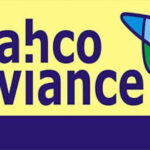Mrs. Adetokunbo Fagbemi is the Group Managing Director and Chief Executive Officer (GMD/CEO) of the Nigeria Aviation Handling Company (NAHCO Aviance). In this interview, she speaks on the impact of the COVID-19 pandemic on the activities of the firm, the strategies for recovery and the recent bailout given to the industry by the federal government.
How has COVID-19 affected the company’s operations?
Last year was a very challenging and interesting one. By this time we were projected for growth. And if you look at our figures which we published at the beginning of the year, I think we had about 30 per cent growth in the month of January and by the end of that first quarter, the impact of COVID-19 started.
By November and December, 2019, we had our eyes on the fact that something was happening in Asia, but we didn’t imagine it was going to be what it was.
As of March 2020, we had a business contingency plan as part of our operations policy and we were just reviewing it early in 2020. We had budget, approved revenue and we wanted to do things differently and we had the full support of the board. We didn’t know what was going to happen, but this plan helped us to move forward.
When the lockdown was declared and the aviation industry was shut down; we had a team that practically lived here for months working in maintenance.
Cargoes peaked up; and there was a change from cargoes coming on freighters to cargoes being loaded in passenger compartments of aircraft. You can imagine how difficult it was. But our team took on the opportunity, supported the airlines and today we can say that we had seamless cargo operations all through.
What was the extent of the losses during the lockdown period?
Everyone lost revenue. We are not the only one, but it taught us how to do things differently, how to operate differently, how to manage our enterprise as a whole differently. We also had to go back to our board, let them know these were the realities and we had the support of our board to review our outlook for the year.
We had to work a scheme where we reviewed our human resources so that some people would be at work, some people would be at home, and as our services began to increase, we began to call people back, and during the year, we met all our obligations to our staff.
When did the cargoes start coming in after the hitches?
At a point when it was really bad, it was as bad as almost 70 per cent reduction. Then it began to improve, and one thing that has been a challenge to us is the fact that we are doing things at a higher cost as a ground handling company because the dollar has gone up, cost of everything has gone up, but in Nigeria we charge less than every other operator in the region; sometimes up to 300 per cent less. So we should be supported as a ground handler because we have put in a lot to support the business, especially the domestic market. We need that support now from every quarter to ensure that we recoup all that we put in to do business.
There was a recent bailout for the aviation industry, what was your share?
We have been given a bailout of about N70 million. But if you look at how much we lost, it is not much, but anything that is given is something that we are grateful for because it is better to have something than to have nothing. We are thanking the federal government, we are also hopeful that some more, as we have been told, would be given to the ground handling companies.
We the Association Ground Handling Companies wrote a letter during the pandemic where we asked for tax exemption on our equipment similar to what was given to aircraft because at the end of the day these are ground support equipment to support and handle the aircraft. So if the aircraft are given zero duty, why should we also not enjoy that? We are also looking at some tax exemption.
Air haulage of cargoes is rising globally, how is it for Nigeria?
I think our domestic airlines should get into doing more cargoes. The other thing is that we haven’t properly as a country structured cargo services well enough to optimise the benefit. For example, there is no standard Nigerian packaging. When you see packages from China, you know they are from China, when you see packages from England, you know they are from England. And some of it may involve the government closing their eyes to some banned items.
A lot of people don’t know they can actually send Aso Ebi. There is so much that you can do that we don’t all need to be travelling, but at the same time we don’t want to kill passenger service. So let’s optimise cargoes. Packaging is important, that warehouse must be air-conditioned otherwise people would prefer to put it in a truck where there would be fresh air. But there is a lot of business in cargo, especially agro-related.
Are you considering the packaging aspect in your company?
There are a lot of things that we are thinking of and as it evolves we would let you know. We have a plan that we are yet to finish perfecting with the Federal Airports Authority of Nigeria (FAAN) to support our export business.
What prospect do you see for the industry post-COVID-19?
I think the industry is already on the path of recovery. The government has said there would be no second lockdown. So if there is no lockdown, then we can grow. It is now talking about the rate of growth. The International Air Transport Association (IATA) has said it would take 2022 to 2023 before we go back to the pre-COVID figure. If we work along with what the industry is saying, that would put us in a good pace. The key thing is to look at how to do things differently, and one of the key areas that we are looking at is how we can support domestic cargo to actually grow; to get it really structured and then optimise it. It also has to do with right pricing.

 Join Daily Trust WhatsApp Community For Quick Access To News and Happenings Around You.
Join Daily Trust WhatsApp Community For Quick Access To News and Happenings Around You.


